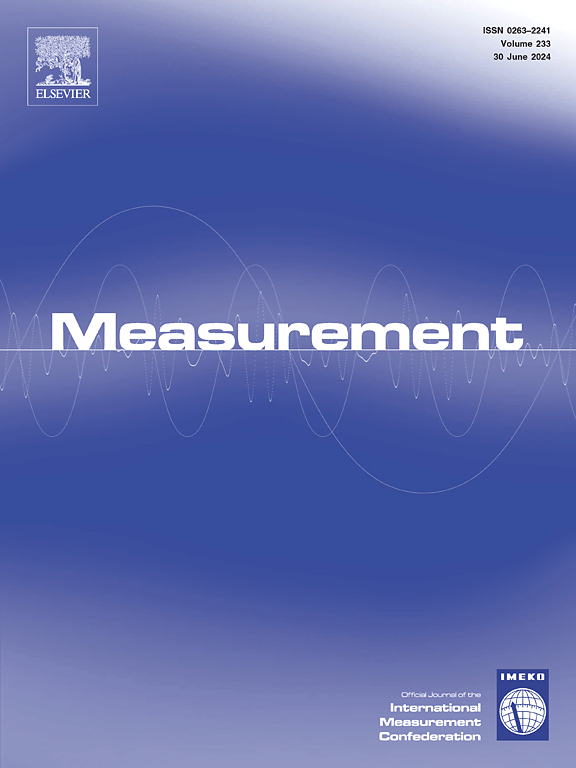Design of a double-gradient scanner apparatus to assess the uncertainty component associated with inhomogeneity in flexible wire thermocouples
IF 5.2
2区 工程技术
Q1 ENGINEERING, MULTIDISCIPLINARY
引用次数: 0
Abstract
Current thermocouple calibration standards identify primary sources of uncertainty, but often lack systematic methodologies for their evaluation. As a result, practitioners frequently rely on generic normative references, which can compromise metrological quality and increase measurement uncertainty. This study develops and validates an experimental setup for assessing calibration uncertainty components related to the thermoelectric inhomogeneity of flexible thermocouple wires. The system features adjustable temperature gradients and a precision movement mechanism, comprising inclined metallic clamps mounted on linear rails, driven by stepper motors, and controlled via an Arduino board. A uniform wire displacement is ensured by an aluminum insert within a metrology well-characterized by known axial thermal homogeneity. The inhomogeneity scanner was validated using tests that simulate artificially aged segments ranging from 15 mm to 400 mm in type T flexible wires, with gauges from 24 AWG to 30 AWG. The results confirmed the system’s ability to detect and quantify thermoelectric inhomogeneity, even under varying artificial aging conditions. Furthermore, the experimentally determined uncertainty values were compared with estimates from the EURAMET Calibration Guide No. 8, demonstrating the robustness and reliability of the proposed approach. This solution provides a cost-effective and easily implementable alternative for calibrating new and used thermocouple wires, ensuring compliance with normative requirements while enhancing metrological quality in temperature measurements.
双梯度扫描装置的设计,以评估柔性线热电偶中与不均匀性相关的不确定度成分
目前的热电偶校准标准确定了不确定度的主要来源,但往往缺乏系统的评估方法。因此,从业者经常依赖于通用的标准参考,这可能会损害计量质量并增加测量的不确定性。本研究开发并验证了一个用于评估与柔性热电偶导线热电不均匀性相关的校准不确定度组件的实验装置。该系统具有可调节的温度梯度和精确的运动机构,包括安装在线性导轨上的倾斜金属夹,由步进电机驱动,并通过Arduino板控制。均匀的电线位移是由一个铝制的插入物在一个已知的轴向热均匀性很好表征的计量。通过模拟T型软电线的人工老化段(范围从15 mm到400 mm),以及24awg到30awg的量规,对非均匀性扫描仪进行了验证。结果证实,即使在不同的人工老化条件下,该系统也能检测和量化热电不均匀性。此外,将实验确定的不确定度值与EURAMET校准指南No. 8的估计值进行了比较,证明了所提出方法的鲁棒性和可靠性。该解决方案为校准新的和使用过的热电偶线提供了一种经济高效且易于实施的替代方案,确保符合规范要求,同时提高温度测量的计量质量。
本文章由计算机程序翻译,如有差异,请以英文原文为准。
求助全文
约1分钟内获得全文
求助全文
来源期刊

Measurement
工程技术-工程:综合
CiteScore
10.20
自引率
12.50%
发文量
1589
审稿时长
12.1 months
期刊介绍:
Contributions are invited on novel achievements in all fields of measurement and instrumentation science and technology. Authors are encouraged to submit novel material, whose ultimate goal is an advancement in the state of the art of: measurement and metrology fundamentals, sensors, measurement instruments, measurement and estimation techniques, measurement data processing and fusion algorithms, evaluation procedures and methodologies for plants and industrial processes, performance analysis of systems, processes and algorithms, mathematical models for measurement-oriented purposes, distributed measurement systems in a connected world.
 求助内容:
求助内容: 应助结果提醒方式:
应助结果提醒方式:


